The 1993 “Don’t Ask, Don’t Tell” (DADT) policy was proffered as a compromise that held the promise that would allow gays and lesbians to serve in the military if they did not reveal their sexual orientation. Established under the premise of discretion and privacy, the policy still barred lesbian, gay, and bisexual people from serving openly in the military. Any service member that reveals his or her homosexuality would be discharged. However, the policy also ostensibly precluded military officials from investigating soldiers suspected of being homosexual. Since the enactment of the DADT policy, more than 13,000 individuals have been discharged from the U.S. armed services due to their sexual orientation – a rate similar to before the DADT law.
America has become an anomaly among westernized nations. Eighty-five percent of the countries in NATO permit openly lesbian, gay, or bisexual soldiers to serve openly in their militaries. The Israeli Defense Forces do not discriminate on the basis of sexual orientation.
The JCPA believes that gay, lesbian, and bisexual personnel should be allowed to openly serve in all branches of the military service subject to the same rules of military conduct that apply to all those who serve. We further believe that any revision of existing policy should involve thorough consultation with military leaders in order to ensure effective implementation.
The community relations field should:
- advocate for policies and programs including repeal of the “don’t ask, don’t tell” law so that lesbian, gay, and bisexual Americans can serve openly in the military.
- Foster dialogue about this issue with those who hold opposing viewpoints while building and participating in coalitions that advocate for repeal of the ‘don’t ask, don’t tell’ law and for policies and programs that will allow lesbian and gay Americans to openly serve openly in the military, without discrimination.
